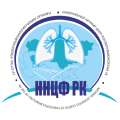About the Journal
The scientific and practical journal Phthisiopulmonology was established in 2001. The founder of the journal is the Republican State Enterprise on the Right of Economic Management “National Scientific Center of Phthisiopulmonology of the Republic of Kazakhstan” of the Ministry of Health of the Republic of Kazakhstan.
The journal publishes articles in the field of phthisiopulmonology, related medical specialties, and healthcare, as well as current issues in the development of science and education within the healthcare system. The scope includes four main sections: clinical disciplines, theoretical disciplines, innovative teaching methods, and healthcare organization.
The journal is published quarterly (four issues per year) and provides a platform for disseminating original research, reviews, case reports, and other scholarly materials in the field of phthisiopulmonology, related medical disciplines, and healthcare. It is currently indexed in the Kazakhstan Scientific Citation Database (impact factor 0.011) and the Russian Science Citation Index (impact factor 0.032).
The aim of the journal is to contribute to the development of the phthisiopulmonology service in the Republic of Kazakhstan through the dissemination of scientific publications in phthisiopulmonology, science and education, and practical healthcare.
Objectives:
To improve the knowledge and practical skills of medical professionals in the prevention, diagnosis, and treatment of tuberculosis and related medical conditions, and in the organization and management of the phthisiopulmonology service.
To promote major achievements in the fields of medicine and healthcare in the global scientific community.
To increase the publication activity of domestic authors and enhance the international visibility of their scientific contributions.
Open Access Policy
The journal provides immediate open access to its content, based on the principle that free public access to research facilitates a greater global exchange of knowledge.
In order to maximize the readership and encourage broad, including critical, discussion of published articles, as well as to ensure the integration of research results into medical and educational practice, the journal adheres to a full open-access policy. All content is freely available on the journal’s website, where users may read, download, copy, distribute, and print full texts without restrictions.
The website also provides information on the publisher, editorial board, peer review policy, publication guidelines, and other relevant details in line with international standards of transparency.
Peer Review Policy
All manuscripts submitted to Phthisiopulmonology undergo peer review.
Initial Screening: Within three days of submission, the Editor-in-Chief evaluates manuscripts for compliance with the journal’s scope and formatting requirements.
External Review: Manuscripts are then reviewed by external experts in the relevant field who hold academic degrees and have no conflict of interest with the authors or the journal. Reviewers are selected by the Editorial Board, and all reviews are conducted voluntarily, free of charge, and confidentially.
The journal employs a double-blind peer review system. Authors are unaware of the reviewers’ identities, and reviewers do not receive information about the authors. Communication between reviewers and authors is mediated by the editorial office.
Reviewers must be recognized experts with publications in the relevant field within the last three years.
Review Outcomes:
Manuscripts receiving negative reviews are rejected.
Positive reviews may require revisions, after which the manuscript is reconsidered.
Authors are provided with copies of reviews or reasoned justifications for rejection upon request.
Revised manuscripts are resubmitted for further review.
Reviewer Responsibilities:
- Provide objective, constructive, and well-reasoned feedback.
- Treat all manuscripts as confidential documents.
- Declare conflicts of interest and withdraw from the review if necessary.
- Avoid personal remarks; evaluations must be professional.
- Notify the editor of any significant overlap between the manuscript and previously published work.
Editorial Decisions:
The Editor-in-Chief makes the final decision on publication, in consultation with the Editorial Board and reviewers. Decisions are based on the scientific merit, originality, reliability, and relevance of the work, as well as compliance with legal and ethical standards.
Editorial Board Policy
The Editorial Board meets every four months, at least one month prior to publication, to evaluate manuscripts for the upcoming issue. The Board approves the list of articles to be published and may request additional external review if needed.
Following technical preparation, the content of each issue is approved by the Editor-in-Chief or Deputy Editor-in-Chief prior to submission for printing. Authors are given the opportunity to review the final layout of their articles to confirm approval before publication.
Publication Ethics
The Editorial Board of Phthisiopulmonology follows internationally recognized principles of publication ethics, including those of the Committee on Publication Ethics (COPE), the Constitution of the Republic of Kazakhstan, Articles 971–984 of the Civil Code of the Republic of Kazakhstan (Special Part), the Law “On Copyright and Related Rights”, and the Law “On Science.”
All participants in the publication process — editors, authors, and reviewers — are required to adhere to ethical standards to prevent plagiarism, falsification, duplicate publication, and other forms of misconduct. Manuscripts found in violation of these standards will be rejected or retracted.
Observance of ethical rules ensures the protection of authors’ rights, enhances publication quality, and prevents the misuse of copyrighted materials.
